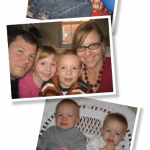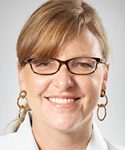Dr. Efthimiou has found that his patients keep challenging him to become better, which keeps his passion for rheumatology alive. “There are many protean presentations for different diseases. A physician needs to constantly second guess himself,” he says. “I also need to closely follow medical literature to remain updated so I can accurately answer patients’ questions.”
The field of rheumatology continues to be riddled with many unanswered questions, which maintains Dr. Borenstein’s interest and keeps the specialty fresh for him. “It’s an area of constant learning,” he says. “Just this week, I advised a physician who couldn’t determine what was wrong with a patient to perform a bone marrow biopsy—which revealed that she had leukemia.”
Dr. Borenstein believes that rheumatologists are problem solvers because they embrace the uncertain. “We are willing to go out on a limb and surmise what might be possible,” he says. “We are willing to continue to investigate and don’t give up easily.”
Recruiting Other Physicians
Dr. Ardoin believes that the best way to get others interested in rheumatology is the same way she became hooked—work with a rheumatologist who loves what they do and discover how interesting and rewarding the field can be.
“Any way that fellowship programs can promote early exposure to rheumatology—either in medical school or residency—would undoubtedly pay dividends in terms of recruitment,” she says.
Dr. Efthimiou has similar sentiments. “When medical students and physicians-in-training come in close contact with rheumatology in the early stage of their careers, they often become enamored with the discipline and decide to become rheumatologists,” he says. “Unfortunately, however, because of the fragmentation of medical education, many young doctors are never exposed to the beauty of this specialty.”
Consequently, he is a strong proponent of offering opportunities for early involvement with the subject in medical school and post-graduate program curricula.
Dr. Borenstein has found the profession to offer an excellent work–life balance—which should appeal to budding physicians. “Because therapies have become so effective, there are fewer severely ill patients, and they aren’t hospitalized as much,” he says.
“After 40 years of being a rheumatologist, I enjoy it as much as when I started,” Dr. Borenstein concludes. “What other types of physicians can say that? While many other doctors complain of being burned out, many rheumatologists at my age remain practicing because we truly enjoy it.”
Karen Appold is a medical writer in Pennsylvania.


